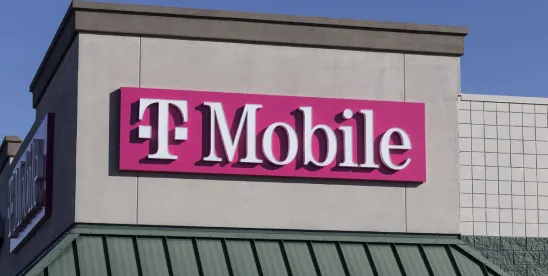On September 11, 2025, the FCC released a Consent Decree with T-Mobile US, Inc. (“T-Mobile”) formally resolving an investigation into whether T-Mobile violated section 302 of the Communications Act of 1934 and parts 2 and 15 of the FCC Rules, specifically concerning the import, marketing, and sale of its REVVL 7 PRO 5G smartphone. The core issue was that T-Mobile imported, marketed, and sold the smartphone device before it had received the necessary FCC equipment authorization. To settle the matter, T-Mobile agreed to the terms of the Consent Decree, including the implementation of a comprehensive compliance plan and monetary payment of $7,000.
The FCC regulates radio frequency (RF) energy-emitting equipment, primarily to prevent harmful interference. The FCC’s Rules require such devices to meet specific standards and obtain authorization before being marketed in the U.S. The Rules apply to devices that intentionally radiate RF energy, like cell phones or Wi-Fi devices, but also to devices that unintentionally emit RF energy, like digital cameras and toys. Section 2.803(b)(1) of the FCC’s Rules specifically prohibits, with very few exceptions, marketing RF devices without proper authorization. Additionally, Sections 2.1203 and 2.1204 of the FCC’s Rules generally provide that an RF device can only be imported if it has received an equipment authorization from the FCC, or if it does not require such authorization but still complies with certain FCC technical and administrative regulations.
According to the Consent Decree, T-Mobile announced the REVVL 7 PRO 5G’s availability on May 14, 2024, and began sales on May 23, 2024. However, the device did not receive its official FCC equipment authorization until May 29, 2024. Even given the brief period of non-compliance, thousands of smartphones were sold during the gap. The FCC initiated an inquiry on October 1, 2024, questioning T-Mobile’s premature marketing and its documentation of import compliance, which was eventually concluded by the Consent Decree.
As part of the settlement, T-Mobile admitted to the factual background and acknowledged the Commission’s jurisdiction. T-Mobile also agreed to a robust Compliance Plan. Within thirty days of the settlement, T-Mobile must appoint a senior corporate manager with the authority to halt marketing activities if compliance issues arise as a Compliance Officer. The Compliance Plan requires strict new operating procedures, such as a compliance checklist, enhanced contractual obligations for T-Mobile’s manufacturers, and verification of equipment authorization before accepting product delivery. The Compliance Officer must also verify equipment authorization at least forty-eight hours prior to marketing or sale. Additionally, T-Mobile will develop a Compliance Manual and implement a mandatory Compliance Training Program for all “Covered Employees,” with annual refreshers.
The Consent Decree is notable for a couple of reasons:
First, T-Mobile informed the FCC that it “generally relies on manufacturers to ensure that FCC equipment authorization procedures are met” and that “compliance with FCC rules are routinely memorialized in the agreement between T-Mobile and the manufacturer.” The FCC generally provides that consignees must “be able to document compliance with the selected import condition and the basis for determining the import condition applied.” Here, the FCC disagreed that the terms of T-Mobile’s agreement satisfied its documentation requirements. Although the exact terms of the agreement are not available, this indicates that contractual representations and warranties, by themselves, may not be sufficient to ensure compliance with the FCC’s Rules.
The Consent Decree is also notable in that T-Mobile is required to pay a voluntary contribution of $7,000 to the United States Treasury within thirty calendar days of the Consent Decree’s effective date. For several years, the FCC has been moving away from allowing voluntary payments in Consent Decrees, instead characterizing such payments as “civil penalties,” reinforcing culpability for the alleged violator. A voluntary contribution may have been allowed in this instance due to the relatively short period of non-compliance paired with T-Mobile’s documented efforts to comply with the Rules. However, the fact that a voluntary contribution was allowed at all is noteworthy.




 />i
/>i

